A common question I get is whether chick grit is necessary. And the answer is yes….and no.
It depends on a few factors, namely, whether your feeding your chicks treats, letting them forage, or feeding extra things like herbs.
Like older chickens, grit can help chicks digest their food. In fact, if you’re feeding anything other than chick starter, I’d say you 100% should provide your new mini flock members with chick grit.
Luckily, that’s an easy thing to do. In this article, I show you what your chicks should eat, what supplements can make them healthier, and when chick grit is necessary.
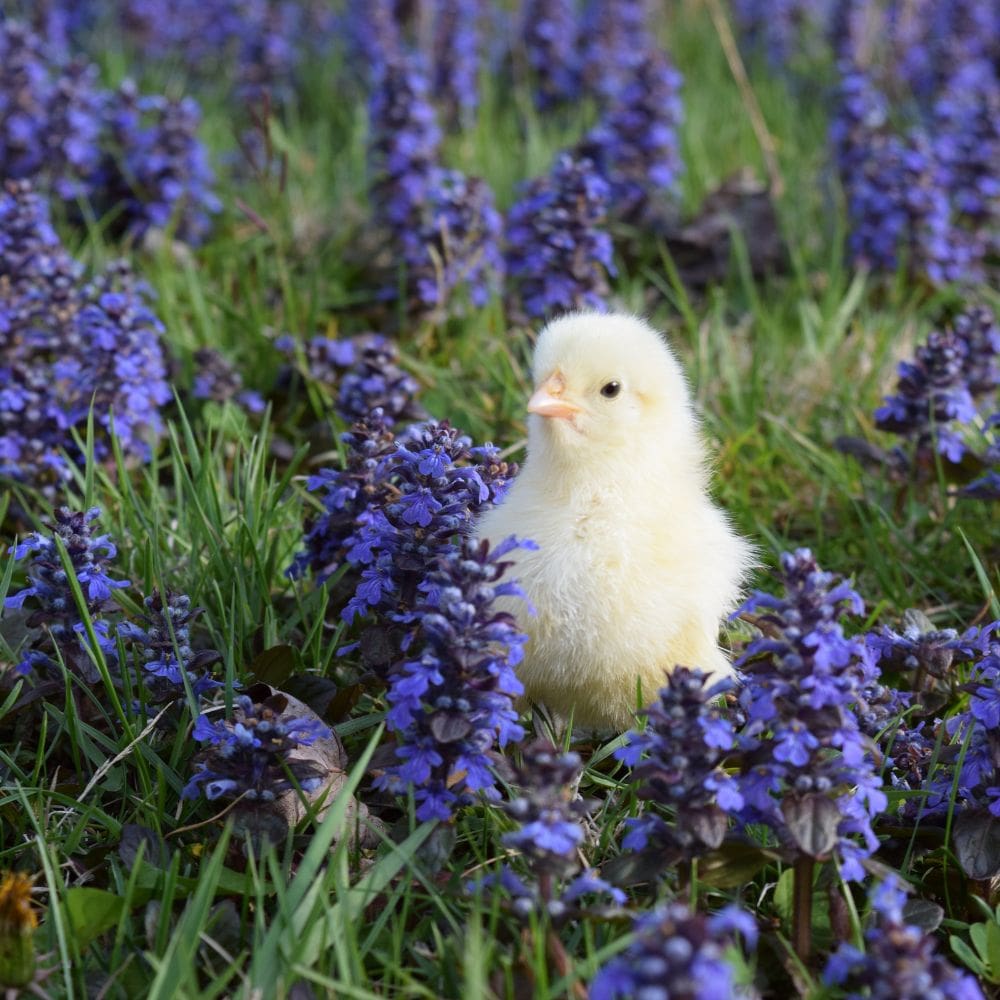
Table of Contents (Quickly Jump To Information)
What is Chick Grit?
Chick grit is tiny rock fragments or gravel that have been broken down so they’re easier for baby chicks’ gizzards to digest. Chickens don’t have teeth, so grit is the tool used. Chicken grit is basically an aid in healthy digestion.
In nature, chicks will pick up rocks outside as they forage with their mothers.
If your chicks were incubated and/or live indoors (we keep our chicks indoors until fully feathered) OR if you feed your chicks anything other than chick starter, chick grit can be the difference between a well-functioning digestive system and one that might prevent your chicks from absorbing nutrients, eventually causing death.
Young birds can start grit at about two weeks of age. If you notice a decline in feed intake, you should limit the amount of grit left out for them.
Oyster shell is often confused with grit, it is not the same thing. Oyster shell is used as a calcium supplement and is primarily for adult poultry (layers) to strengthen eggshells. If you want good, strong eggs, you will need that.
What Should Chicks Eat?
For the full breakdown of what your chicks should eat, click here.
To summarize, your chicks should have 24-hour access to a high-quality chick starter. I created my own to be sure my chicks are getting the healthiest start possible. So many folks asked for my recipe, that I now sell it. See it here.
If you are up to it you CAN make your own chick starter (and organic chicken feed). Just be sure it has at least 18% protein so they grow into healthy backyard chickens.
To make things easier on yourself, especially if you’re new to poultry, going with a specially formulated blend takes out the guesswork. What I offer is also non-GMO and organic.
Medicated or Non-Medicated?
In the past, I’ve fed both medicated and non-medicated feed. Both are equally healthy.
The difference between them is that medicated feed contains an additive called amprolium that helps chicks develop a resistance to parasites (coccidia) naturally found in soil.
Yes, amprolium is a drug, and no, it’s not an antibiotic. It’s an anthelmintic, which means it helps prevent parasites.
These parasites can cause coccidiosis – a potentially deadly parasite infection.
It’s completely up to you whether you want to feed medicated or non-medicated start. Both have a place and your decision is individual to your flock.
If my chicks seem to do ok, then I might use non-medicated starter. If I’ve gotten chicks from a hatchery or they seem to have some health issue, then I’ll turn to medicated chick starter so I have one less issue.
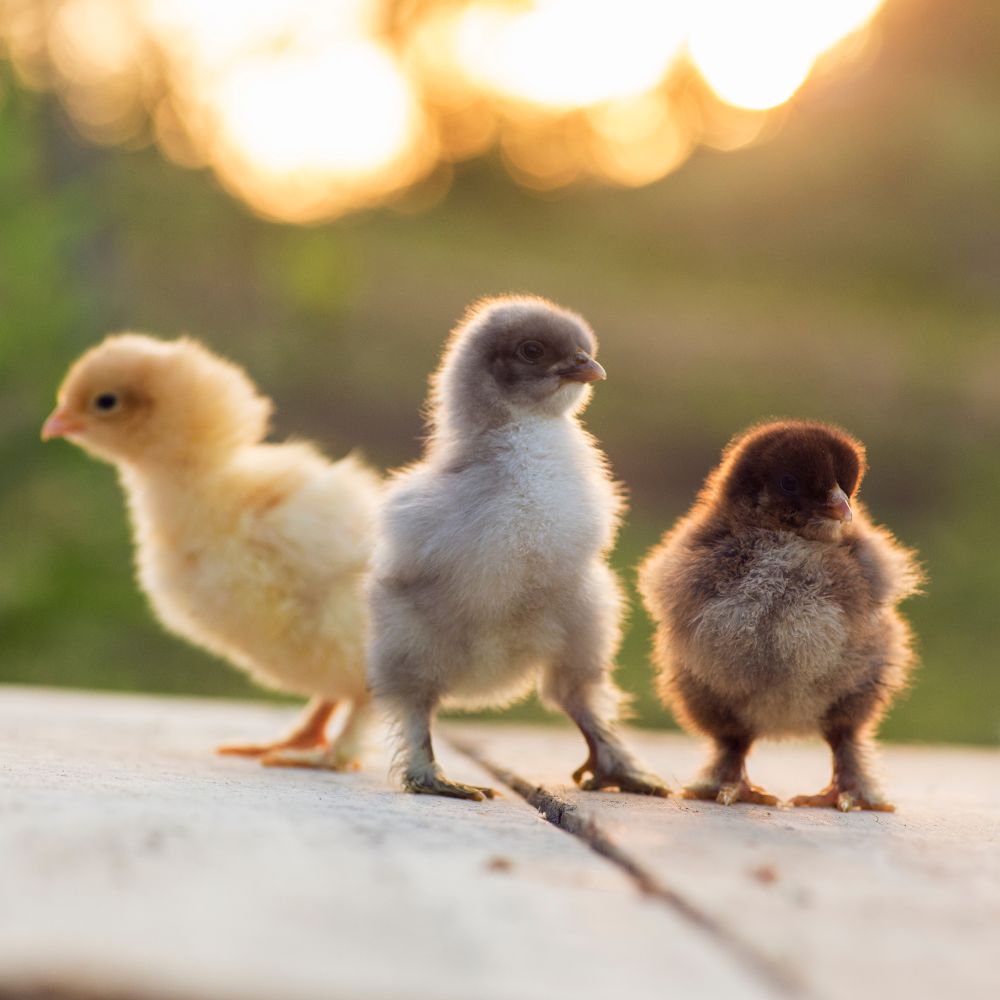
To Ferment or Not To Ferment?
You can ferment your chick starter if you want to. Fermenting chicken feed is easy to do, and has a lot of health benefits.
Particularly if you plan to ferment their feed when they turn into adults, it’s a good idea to start young so they get used to the texture.
If you ferment the chick starter for 24 hours, it will have some beneficial bacteria in it and won’t turn moldy in that short of a period of time.
Apple Cider Vinegar
Something I ALWAYS give chicks is apple cider vinegar. The beneficial bacteria in apple cider vinegar can help your chicks get a great start to life since it helps them establish good, healthy gut flora.
Ever heard of pasty butt? It’s similar to scours in young mammals like pigs, cows, and horses, or diarrhea in humans. Left unattended, it can cause major health issues, including death, in chicks because their vents get clogged and they can’t defecate easily.
It can happen for a variety of reasons, and one big one is if their guts aren’t quite ready for life in the big world. Apple cider vinegar can help chickens avoid digestive issues and overall be healthier.
We found over the years that it reduces death rates in our chicks. So, it’s always in the first water our chicks get, and they love it.
Simply add it to their waterers and dip their beaks in very gently so they get a drink. Be sure to use clean water. I’ve never had a chick not take to it.
Herbs for Chicks
Now, before I begin this section, let me start out by saying that I’m not a fan of feeding chicks much of anything else except starter and chick-specific treats.
I like to be sure they’re only eating the healthiest food so they grow right and their bodies, feathers, and organs develop correctly.
That being said, I do have numerous readers who feed their chicks herbs so they’re healthier.
If you want to go in this direction, then the best thing to do is offer simple, healthy herbs such as oregano or sage.
Oregano has strong antibiotic properties, while sage has properties that can help prevent parasites.
Most herbs for hens are okay, although I would stick with the two above.
Summary
If you do not feed your chicks herbs or allow them to free range and forage outside, be sure to offer chick grit so they can easily digest anything they might eat.
If they’re foraging and eat bugs or seeds, they will get natural grit to break down their food so they can absorb nutrients from the goodies they’re eating.
You can offer chick grit as a preventative as well. When I offer chick grit, I mix it with their feed to make sure they taste test some. If you offer it separately, they might not understand what it’s about, and ignore it. It’s hard to ignore something in your feed!
Maat van Uitert is a backyard chicken and sustainable living expert. She is also the author of Chickens: Naturally Raising A Sustainable Flock, which was a best seller in it’s Amazon category. Maat has been featured on NBC, CBS, AOL Finance, Community Chickens, the Huffington Post, Chickens magazine, Backyard Poultry, and Countryside Magazine. She lives on her farm in Southeast Missouri with her husband, two children, and about a million chickens and ducks. You can follow Maat on Facebook here and Instagram here.

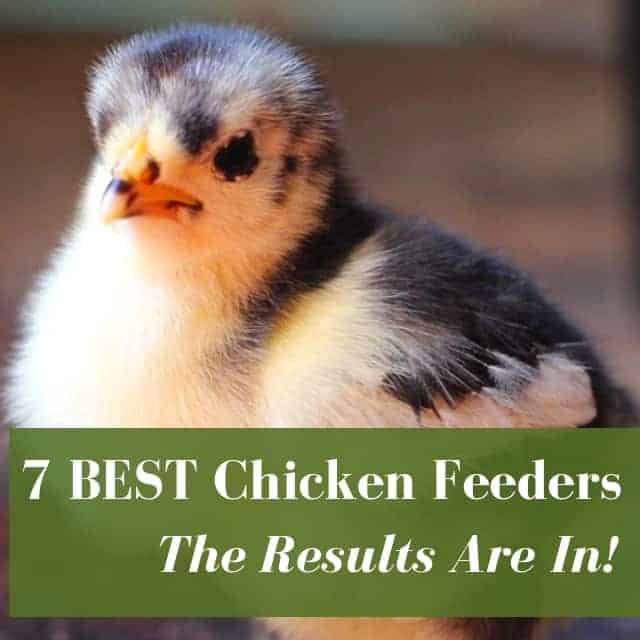
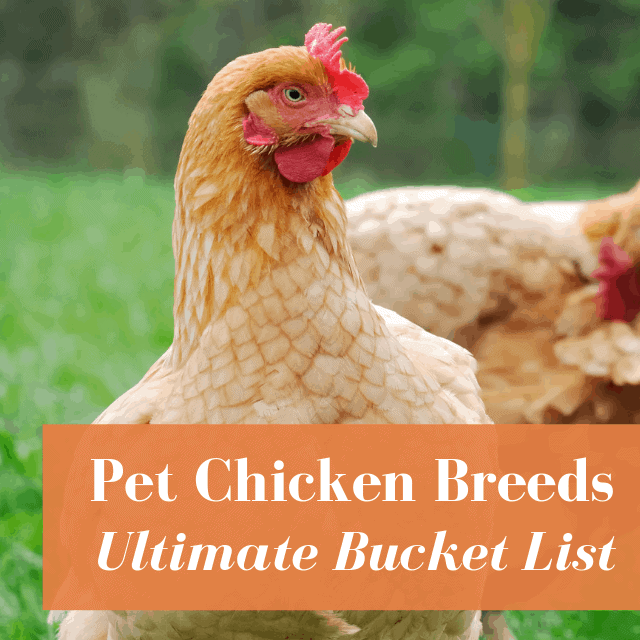
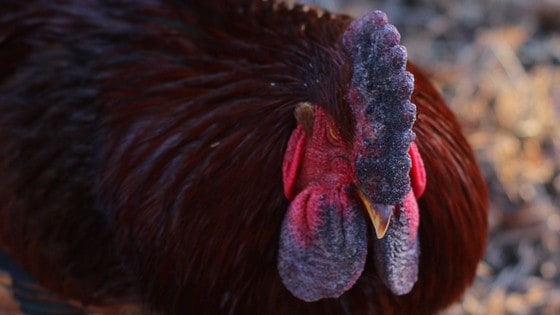
![Eye Worms, Letting Chicks Outdoors, Getting Rid Of Mites, Fertile Grocery Store Eggs, & Greek Yogurt [Podcast]](https://thefrugalchicken.com/wp-content/uploads/2016/03/eye-worms-podcast-min.jpg)
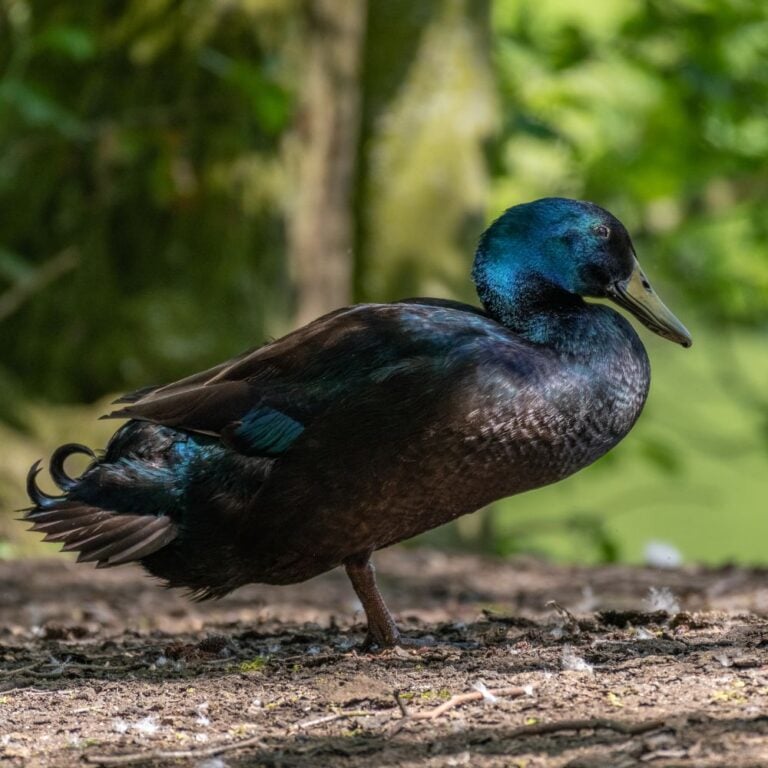
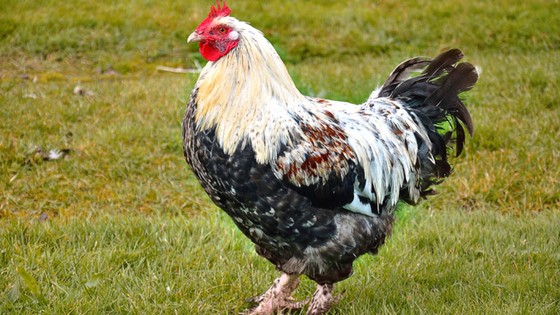
Is it ok to feed grown chickens earthworms? My Chickens love them.
Yep! Mine love them too!